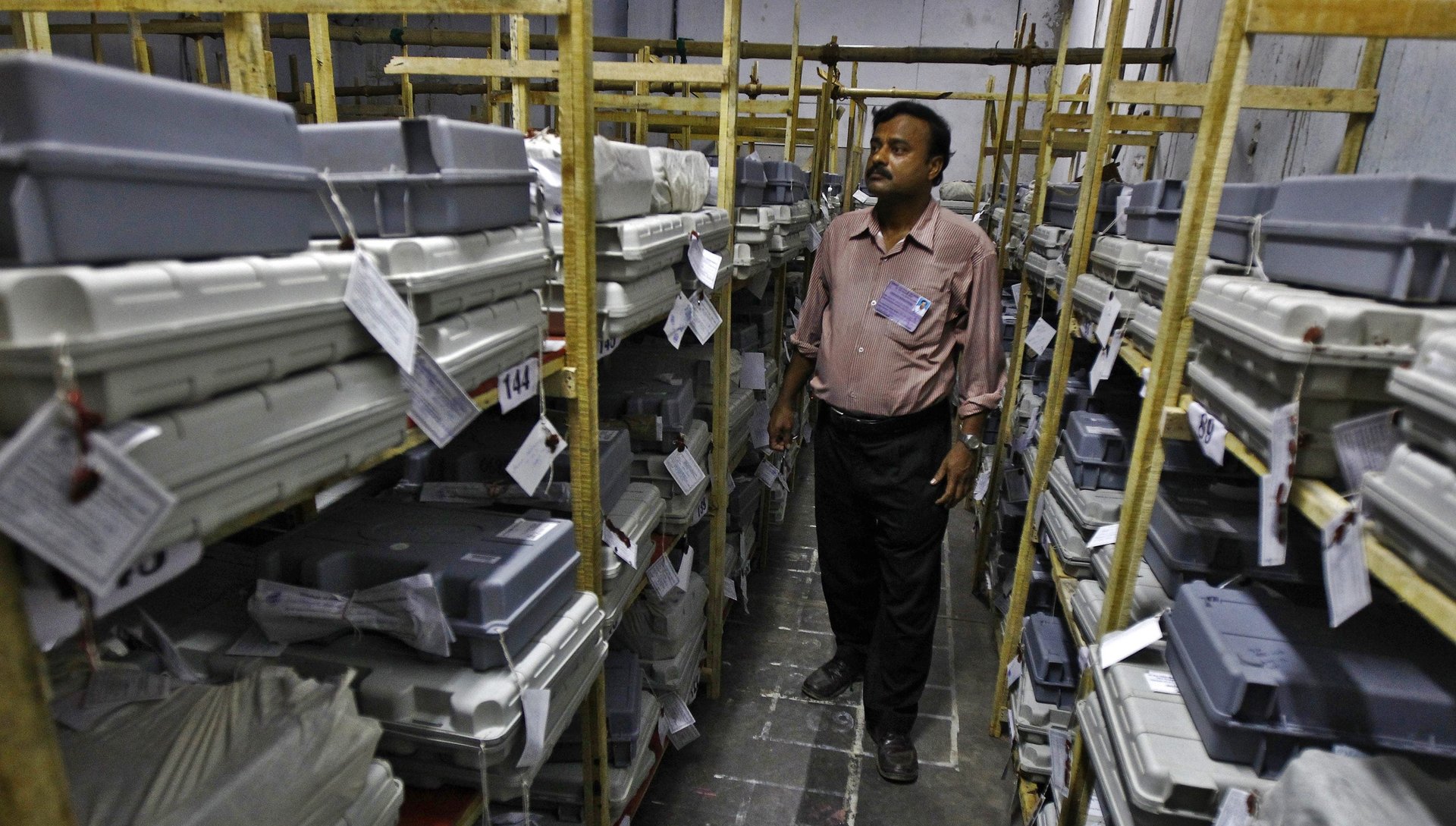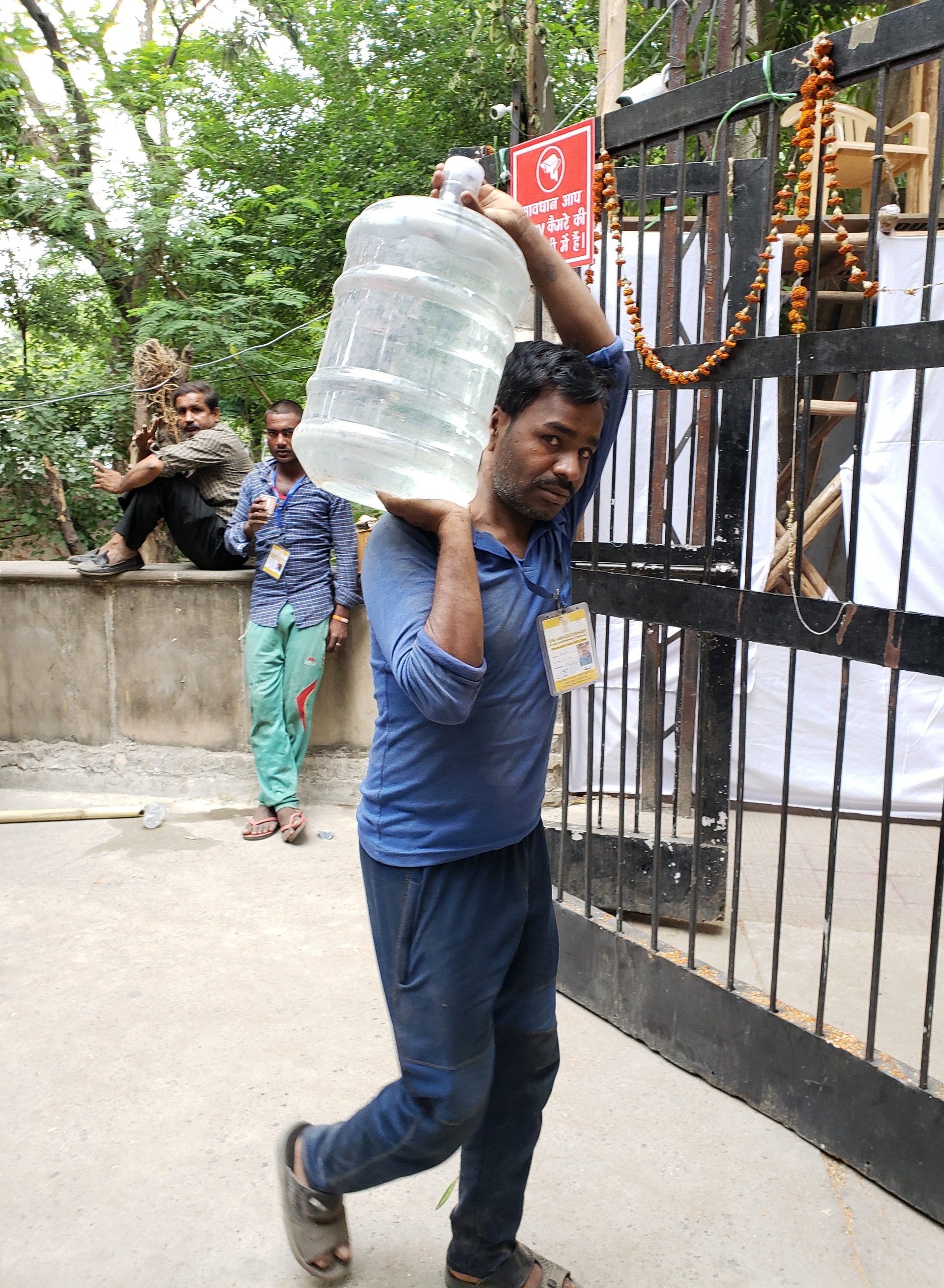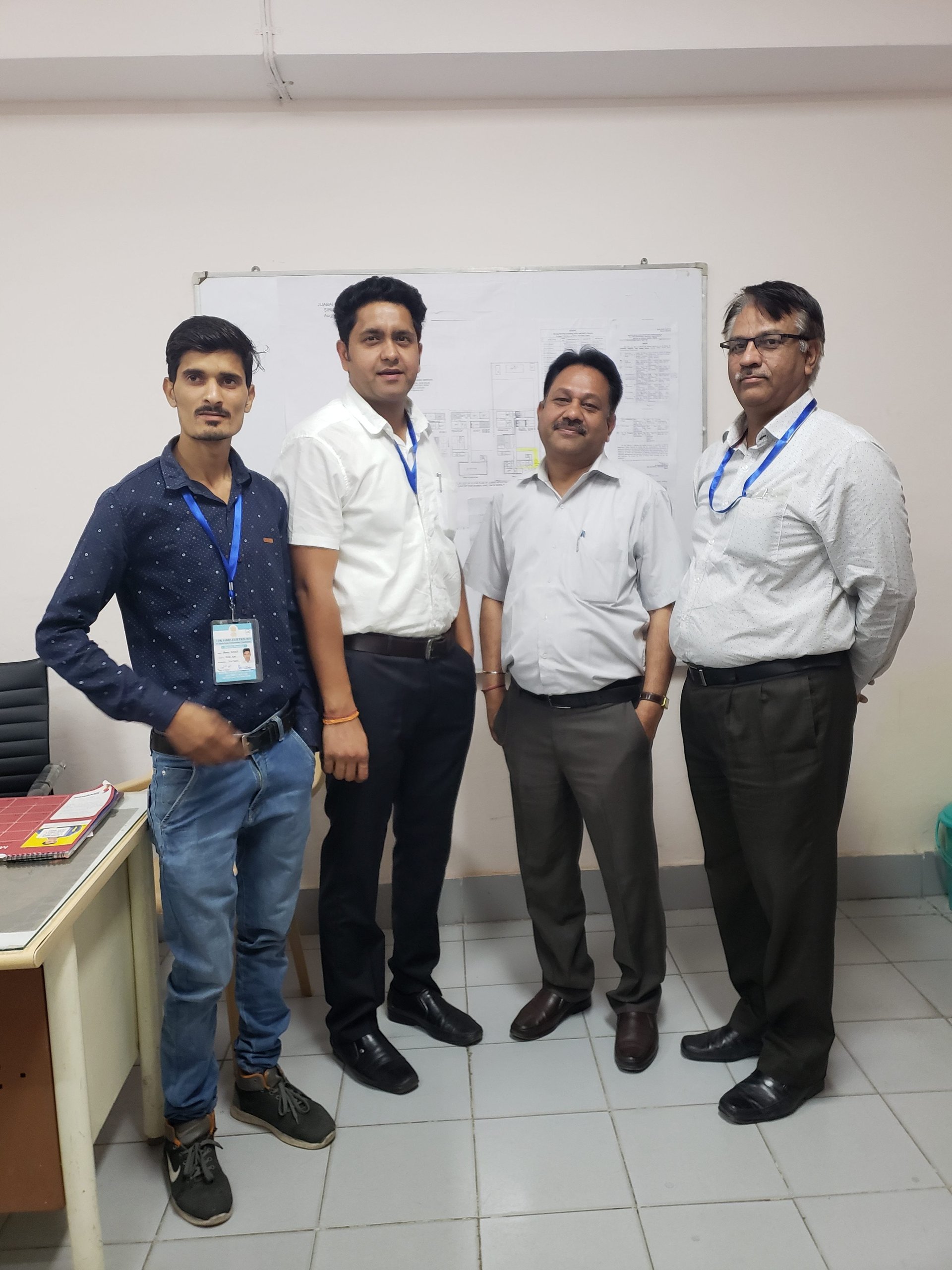Guarding the bedrock of Indian democracy till vote counting is actually quite boring
Indian officials like to call the country’s mammoth election “the festival of democracy.” And indeed, a day before the results are out, the preparation for the counting of votes is nothing less than that for a big party.


Indian officials like to call the country’s mammoth election “the festival of democracy.” And indeed, a day before the results are out, the preparation for the counting of votes is nothing less than that for a big party.
The counting hall for the Delhi South constituency is the Jija Bai college for women in the Siri Fort area. Vendors—taking care of everything from food to internet connection—sporting security passes hanging from their neck, walk in and and out of the venue, carrying big water bottles and canteen supplies. Colourful tents have been set up, ready to host the press and party delegates attending the counting tomorrow (May 23), beginning around 8am.

Inside the building, electronic voting machines (EVMs) are stored in strong rooms, guarded by layers of police and paramilitary forces. They have been there since the election was announced, taken to the voting booths on May 11 (Delhi voted on May 12), and then brought back after voting.
It’s a 24/7 security setup replicated in the 543 counting centres around the country, each housing the EVMs of one constituency. It takes hundreds of people to look after each of these centers, making it over half-a-million security, logistical, and administrative personnel dedicated to only EVMs management across the country.
This election, EVMs, typically considered a safe way to collect and store votes, have been at the centre of controversy: From reports of the machines registering votes for the wrong party, to security issues in transportation, to outright attack of polling teams and stealing of machines, complaints have been so frequent the poll panel has decided to set up a control room to deal with reports of irregularities.
Surveilling the surveillance
To ensure safety and transparency, the election commission’s rules mandate that CCTV cameras be installed outside the sealed strong rooms. A screen, outside the school building, displays the footage, which representatives of the candidates and party have the right to watch, day and night, to avoid any malpractice.
“What is a lock in the way of a thief,” Tribhuvan Kumar Singh Chauhan, a representative for the Aam Aadmi Party (AAP), asks rhetorically during his eight-hour shift to check the CCTV footage. Growing up in Bihar, he says, he has seen routinely seen booth capturing and other attempts at hijacking the ballots, so he thinks his job is very important. “I feel excited that I’m doing this to improve society, to fight corruption,” he explains, while the screen displays several different angles of the rooms, outside of which paramilitary personnel sit listlessly, rifle handy, eight hours at a time.
Chauhan was one of two party workers outside the Jija Bai college building this morning (May 22), the other being a Bharatiya Janata Party (BJP) worker, who then wandered away. The same party workers have been rotating day and night, and Chauhan says they are all friendly with one another, as they develop a rapport during the otherwise monotonous hours.
Just another couple of weeks at the office
Manoj Saxena, who works in training at Jija Bai college and has been seconded to election duty for the two months since the school was selected to host the EVMs, is also excited: This is his 12th election, but he still enjoys playing his part in the administration of democracy.
“We have prepared for the past five months—no leave, no Saturday or Sundays, nothing,” says Basant Kumar, who works for the district magistrate (DM) office, explaining that when the machines were taken to the polling stations and back, it required the personnel to go through 60 hours of nonstop work. Then again, this is business as usual for him; as DM staff, he says, he is automatically involved in election duty (this is his fourth).

In the Common Wealth Games village’s badminton court, where the East Delhi EVMs were being kept, a group of four policemen guarding the entrance barely shared any comments with Quartz on May 13, the day after Delhi elections, as they stood around somewhat aimlessly, rifle on shoulder. “It’s just duty,” said Subodh Ravat, one of them, reacting with confusion at the question of how does one spend an eight-hour stretch, day after day, just guarding some locked away machines.
This seems to be the most common feeling with security personnel across counting halls and strong rooms. In Chandni Chowk, on May 21, Quartz wasn’t even allowed to go see the screens displaying the CCTV footage: The rules of access appear to be quite arbitrary, and different officials advance seemingly made-up requirements for members of the press to get closer to the EVMs. Vishal Sharma and Suresh Kumar, two members of the Delhi police guarding the entrance to SKB Bharat Nagar school, said election security is simply “part of our duty.”
At the very least, they will all soon be done with the unceasing guard and return to regular policing. Will they take a holiday once it’s all over? “No,” said Manoj Kumar, assigned to South Delhi and with many such elections behind him, “We’ll get another assignment.”
Read Quartz’s coverage of the 2019 Indian general election here.